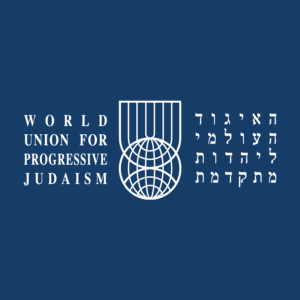For years I prayed with Rabbi Irwin Wise at Adath Israel Congregation in Cincinnati, and each year Rabbi Wise would implore his congregants to attend weekday yom tov services with the same joke. He reminded them that the people did not cross the Red Sea until the seventh day of Passover, and so “you have to come back” for weekday morning chol hamoed Passover services. After all, “You don’t want to get stuck in Egypt.”
In retrospect, of course I became a rabbi; who else attends services voluntarily while a high school and college student? At the time though my entry into Hebrew Union College felt very coincidental. The school happened to be in Cincinnati, my parents happened to want me back at home for a while before I went off to law school in Israel, and various romantic entanglements of my then young life pushed and pulled.
Let’s start with the question: how does Leo Tolstoy’s novel “War and Peace” end? What is the last word of this novel? This is how the second part of the Epilogue ends: “to recognize a dependence of which we are not conscious” (Translators: Louise and Aylmer Maude, 2001)
In Germany, Poland and the Czech Republic, Visits with Ukraine Crisis Fund Beneficiaries, and Talks to Ensure Vitality of Region’s Progressive Jewish Communities. Joining Rabbi Bergman will be Sonja Guentner, Chair of the European Union for Progressive Judaism, which is coordinating his visit, and Andrew Keene, a member of WUPJ’s Management Committee.
This Shabbat finds much of the Jewish people simultaneously preparing to greet Shabbat, and making plans and arrangements to clean chametz (specific grains forbidden during Passover) from our homes.
Every time my teen son leaves the house, my final words to him are always, “Be careful!” This is what my parents always said to me (and still do!). This is what their parents always said to them. I guess it’s already a family tradition.
Water is the most important substance for all life on Earth. It is also an important element in Judaism. Crossing a large body of water is a transformative step. Jacob encounters the angel of God at the Jabok cross of the Jordan River. This experience transformed him form the crooked Jacob to the one struggling with God – Israel.
If the portions in the Torah’s Book of Genesis spin timeless tales of complicated family dynamics, sibling rivalry, spousal jealousy, treachery, and reconciliation, Leviticus oozes with laws regarding sacrifices, priestly matters, and the festival calendar. Emor, this week’s portion, is a veritable kitchen sink (or perhaps more precisely, a tabernacle altar) of rules for the priests forbidding them from encountering dead bodies, offering guidance on beard trimming, and providing descriptions of appropriate life partners.
The Torah declares: “These are p’kudei haMishkan, the records of the Tabernacle, the Tabernacle of the Pact, which were drawn up at Moses’ bidding…” (Exodus 38:21). The types and amounts of materials that went into the Mishkan, the priestly garments, and the sacred tools are listed in detail. While not an engaging narrative, this section sets a vital precedent for financial accountability and transparency among our public and private sector leaders from ancient times through today.
Rabbi Neal I Borovitz | Rabbi Emeritus, Temple Avodat Shalom, New Jersey, USA “VaYomer Adonai el Moshe Bo el Paroh” is the first clause of the opening verse of this week’s Parsha. Most English Bibles, based upon both Jewish and Christian scholarship, translate “Bo el Paroh “as a Divine command to Moses to: Go to […]









